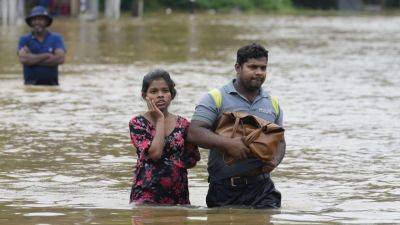‘We want our children back’: the Sri Lankan families still demanding justice for their missing loved ones
In May 2009, Leeladevi Ananda Nadaraja’s 34-year-old son surrendered to the Sri Lankan army at a military checkpoint after being conscripted by a separatist militant group fighting for a homeland for the country’s Tamil minority.
That was the last 72-year-old has heard from her son. She has spent the last 15 years searching for him, weeping, protesting, and demanding justice.
Nadaraja’s son was among the tens of thousands of Tamils who went missing in 2008 and 2009 during the last phase of the war between the Liberation Tigers of Tamil Eelam (LTTE) and the Sri Lankan army. The country’s three-decade-long civil war ended when the government’s forces emerged victorious, but thousands of civilians were believed to have been killed during the conflict, with Amnesty International estimating about 60,000 to 100,000 reportedly going missing during its final stages.
Fifteen years after the war, families of the missing still wait for their loved ones to come home. Thousands of Tamils gathered on May 18 in northern Sri Lanka, where the last battle between the LTTE and the Sri Lankan army took place, to commemorate the dead and remember their missing family members. Their grief and loss remain fresh even after a decade and a half.
Since 2018, 225 ageing parents have died without seeing their missing children return, according to Nadaraja, who is general secretary of the Association for the Relatives of the Enforced Disappearances (ARED).
Nadaraja estimates some 16,000 families from eight districts from the country’s northern and the eastern provinces are still searching for their loved ones.
In 2016, the Sri Lankan parliament passed laws establishing the Office on Missing Persons (OMP) to investigate and provide justice for the







